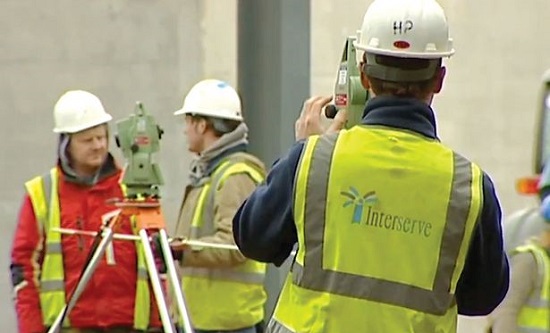
Interserve, a multinational corporation based in Britain which describes itself as a ‘leader in innovative and sustainable outcomes’ is attempting to fix its financial troubles. It is following the path of Carillion which collapsed a year earlier on 15 January 2018 (see FRFI 262). Like Carillion, Interserve has been awarded numerous government contracts through Private finance initiatives (PFIs) in sectors including construction, healthcare, hospital cleaning services, school meals and probation services. This is the way public services are now run in Britain: contracts are awarded to private companies, putting tax money in the pocket of big business, and jeopardising the sustainability of these services.
Interserve’s shares lost more than 50% of their value on 10 December 2018 as the company attempted to negotiate its second rescue deal in one year, threatening the employment of 75,000 workers. Mainstream media almost act surprised that another large contracting company is ‘following in the footsteps of Carillion’, as The Guardian (21 December 2018) has said about Interserve and near-identical contracting company Kier. However, as we said in FRFI 262, ‘Carillion’s demise is not an aberration of capitalism: rather it expresses exactly what capitalism has become in Britain: corrupt and parasitic, incapable of providing decent public services.’
In 2017 Interserve’s debt stood at £657.7m, up from £464.9m in 2016. Its share price has fallen sharply over the past five years and was not helped by the collapse of Carillion early in 2018. Hedge funds have been drawing large profits from the falling share price, for example Speculators made an estimated £68m betting against Interserve over 2018. These bets have been made by some of the same people speculating on Carillion’s collapse. Marshall Wace, the hedge fund company that bet heavily against Carillion before its collapse also held a ‘short position’ of 2% against Interserve at the start of 2018. Marshall Wace lists among its company values, ‘We are committed to contributing to society’. Nothing could be further from the truth. These parasites have made millions from the destruction of public services.
. Interserve was booted off the contract to build the Polmadie plant in Glasgow in November 2016, leading to mass lay-offs (with employees being locked out of their workplace) and costing the company £160m. Interserve was dismissed by its client Viridor which itself was contracted by Glasgow City Council for £254m to handle the city’s waste for the next 25 years. Viridor’s Capital Projects Director said ‘Interserve has continually and repeatedly failed to meet delivery milestones’. Interserve’s retreat from the waste-to-energy market saw it quitting six contracts with revenues over £400m.
Recent years have not been kind to other outsourcers either. Mitie’s share price is around 45% of what it was in 2013 while shares in Capita and Serco have lost around 80% of their value in the same period. Interserve’s share price is around 12% of what it was 5 years ago.
What all these companies have in common is that like Carillion, they have relied on acquiring other businesses and winning new contracts to generate the required income and making the businesses appear to be enjoying healthy growth. For example, Interserve acquired companies such as CMC Construction Services, Business Employment Services Training (BEST), The Oman Construction Company and Initial Facilities. These acquisitions along with selling stakes in some PFI run hospitals, schools and prisons allowed Interserve’s share price to nearly triple between 2010 and 2014. But this process led to an unhealthy balance sheet with significant ‘intangible’ assets, primarily in the form of ‘goodwill’. Goodwill is a term given to excess money paid upfront to acquire a company. The ‘goodwill’ is paid over and above what the company is valued at with the expectation that it will generate profits in the future. There is no guarantee of a return on this investment. This differs from ‘tangible’ assets such as money owed or assets which a company owns and can sell and is clearly not a robust source of income.
Carillion’s liabilities were 34% greater than its tangible assets even in 2016 when auditors considered it to be healthy. Interserve’s liabilities exceed tangible assets by 28%, Serco by 41%, Capita by 67% and Mitie by 53% (Financial Times 3 December 2018). These companies are having to rely on winning new contracts in order to generate revenue and are relying heavily on debt in order to finance these contracts. This short-term strategy gives the appearance of growth and profitability, but it is unsustainable.
Attempting to avert collapse, Interserve has reached agreement with its creditors to defer its debt payment from 1 February, to 30 April – buying them some time, which, according to Debbie White, Chief Executive of Interserve, is ‘excellent news for all our employees, customers and suppliers’.
With these companies holding the reins of public services handed to them by the British state, their unstable financial practices will lead to a more volatile public service sector, the share prices of UK outsourcers Serco, Interserve, Capita, Mitie and Kier all being on a downward trend. Interserve’s plan is simply to push back the date of its debt payments, to give it a little more time to win another contract, with no real plan to make itself sustainable.
Heidi Grace and Lucy Roberts




